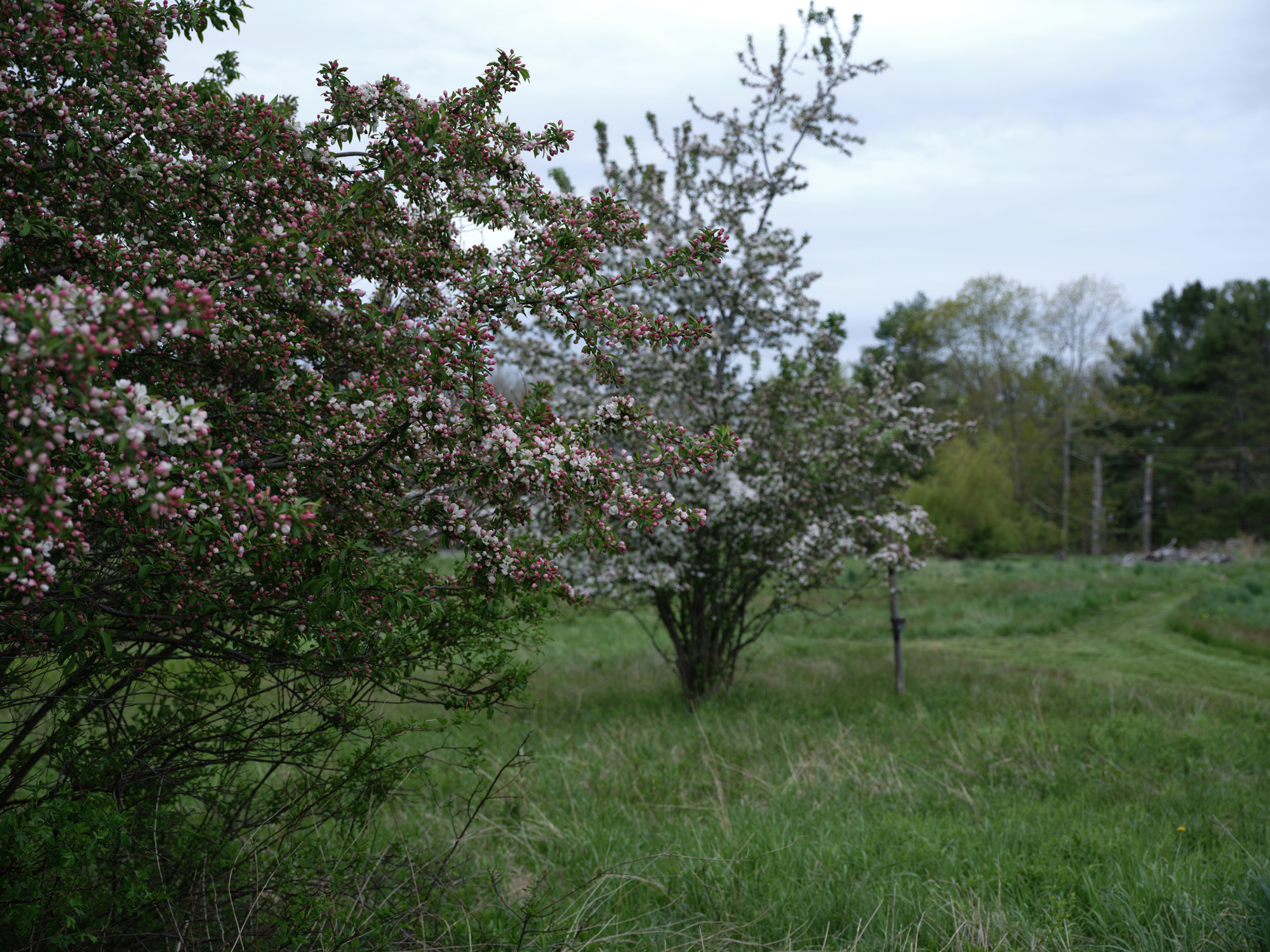Landscape designer Matthew Cunningham had long envisioned a project that would allow him and his team to explore the potential of sustainable landscape design on a larger scale. The land needed to have several acres, like a former farm. After scouring real estate pages for months, one Saturday night back in June of 2022, the ideal candidate popped up. The site was previously used to board horses, complete with a 10,000 square foot riding arena and 13 acres of land. By that Monday morning, his offer had been accepted to purchase the property.

While this story is a bit different from a residential landscape profile, it bears importance in our region’s—and our world’s—ecological context. Matthew’s vision for these 13 acres was to create the first Land Lab (at least, first to his knowledge) in the Northeast. The Land Lab would be an educational experiment that would allow the land to be suspended in a period of successional growth. The former horse barn has been converted into a large multi-purpose pavilion that can host events and lectures, so this site can double as an educational hub. Matthew says, “The idea behind the Land Lab is to use it as a place for both our firm and larger design community to gather and think about the importance of land stewardship, from micro to macro levels.”
Matthew also teaches at the Harvard Graduate School of Design and has brought students to the site to see the farm. “We allowed the land to go fallow,” he says. “The hope is to curate growth into an experience that celebrates the vibrant ecologies of the site.” His students get to see the impacts of land management and maintenance in real time. The lab highlights the challenges of climate change in coastal Maine, which has suffered from storm surges and erosion, and serves as a hopeful model for resilient design amid environmental crises.


Matthew also notes the power of discovery through nature. Though plants trigger biodiversity, improve soil health, and have so many other benefits to the natural environment, they also can help humans recenter their role in the broader ecosystem. He says, “When things feel bleak, it helps to walk through a field and feel the sun on our faces. Humans have divorced themselves from the outdoor experience, but we are still part of a habitat. Plants remind us how we are connected to the Earth.”
Though the Land Lab is a pioneer in the field of sustainable landscaping and education systems, we hope to see more out-of-the-box thinking across all disciplines. “I get excited imagining how other Maine landscape architects will innovate tools to inform sustainable practices,” Matthew says. “So many of us go into this field wanting to make a difference.”

Matthew will also bring clients to the lab to show them what is possible in their own yards. Though the installation cost of native plants is the same as domestic ones—the long-term cost of maintenance for native plants is significantly lower, as they have adapted to the region over thousands of years.
Finding hope and focusing on ways local communities can work to preserve Maine’s beauty has never been more crucial. Matthew’s Land Lab is one powerful step forward to building a more sustainable future.





